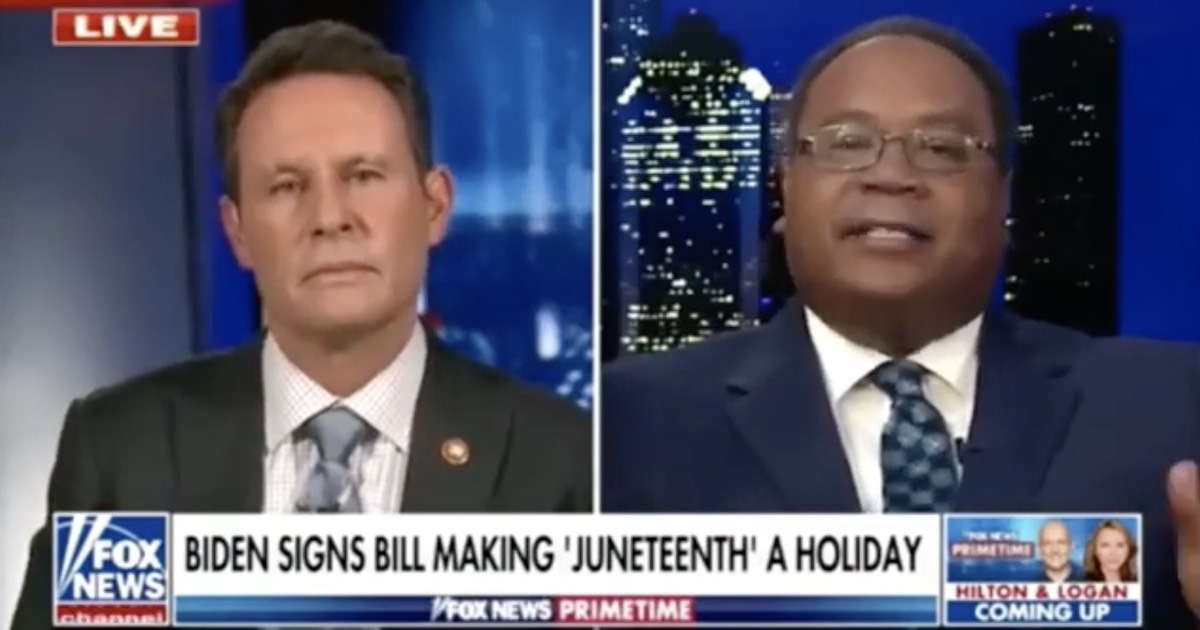
21 Jun 2021 After Juneteenth, Should We Remember the Alamo?
On June 17, President Joe Biden signed a law creating the June 19 Juneteenth national holiday. And then the federal government promptly closed on June 18 because a national holiday that falls on a weekend must be recognized during the workweek.
Kinda distracts from the solemnity of marking a major milestone in the end of slavery in America, dontchathink?
Also marring the new holiday were those who sought to immediately use it as a reason to demand more items from the leftist agenda, such as a higher minimum wage and critical race theory. This included President Biden, who used the bill-signing ceremony itself to make a push for legislation that would remove election safeguards such as voter ID and voting list improvement in the name of equity.
Discussing the new holiday and more with guest host Brian Kilmeade on the Fox News Channel program “Fox News Primetime,” Project 21 Co-Chairman Horace Cooper explained his “mixed feelings” about the elevation of Juneteenth from a relatively obscure civil rights commemoration to a major holiday event, especially in the wake of the Black Lives Matter-inspired riots of 2020.
Project 21 has observed Juneteenth for over 20 years. But many members recently expressed skepticism over lawmakers’ hasty decision to embrace Juneteenth as the first new federal holiday in almost 40 years.
Explaining his own personal link to the observance of Juneteenth, Horace remarked:
Growing up in the state of Texas, we always celebrated this. It’s been a state law since 1979.
It’s not clear to me why the whole rest of the country is going to give as much attention to this. Are we also gonna have a national holiday to remember the Alamo?
Commenting on Biden’s efforts to politicize the new holiday from its very inception, Horace added:
I’m really disturbed by the fact that the president chose to use an event like this to divide us with a lie about voting rights. I personally would have preferred – if we are gonna do a national holiday – it would be “Emancipation Day” in December, commemorating the passage of the 13th Amendment…
I looked at the bill. The bill itself actually says “Juneteenth National Independence Day.” Well, we have a national independence day already. That’s the 4th of July. I think that’s a day all of us can come together.
Naming this one something very similar – so hastily and without justification for explaining why the whole country needs to come together to celebrate this event – was quite curious, from my perspective.
Several other Project 21 members noted how Juneteenth could be used to draw away from the importance of the July 4th Independence Day observance, and that December 6 – the day the 13th Amendment was ratified – is a more appropriate commemoration of the end of slavery.
On another topic, Horace was asked to comment about Chicago Mayor Lori Lightfoot declaring racism a health crisis. Horace noted that “[t]he logic of this just makes no sense.” He pointed out how it was the mayor who recently chose to allow race to dominate policy when she refused to sit for interviews with white reporters. Noting this hypocrisy, Horace said:
Is she saying that, if you refuse on the basis of race to let reporters interview you, that that could lead to someone’s death? Because that’s bigotry. That’s out and out bigotry. She hasn’t apologize yet for it.
As for the folly of suggesting that “systemic racism” drives health policy, Horace replied:
There are any number of medical explanations for the disparity – along racial lines – for how long people live. It turns out men die sooner than women. Is America actually a matriarchy that is designed in every way to stymie the aspirations of men?



